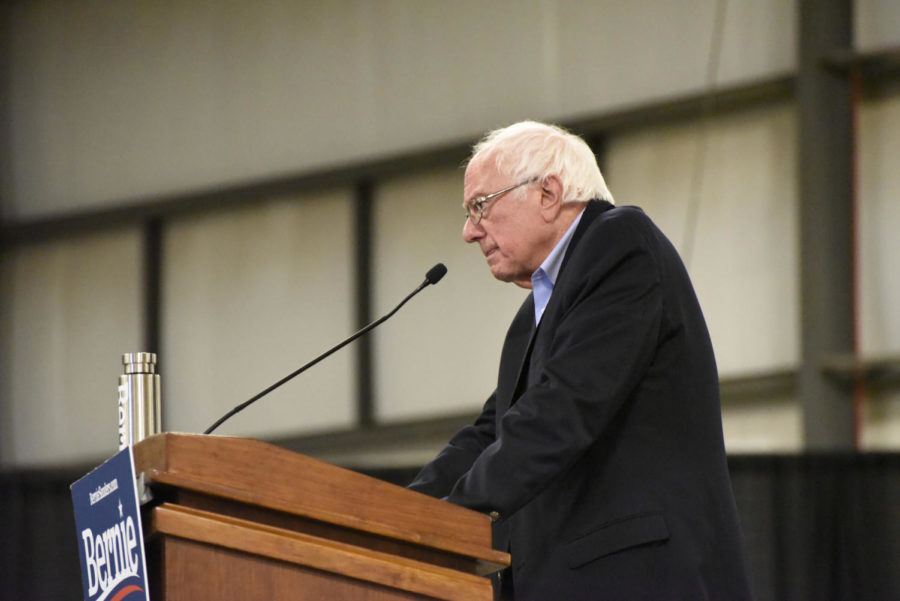Berch: As politicians debate single-payer, some already pay the price
Caitlin Yamada/ Iowa State Daily
Columnist Olivia Rasmussen believes Vermont Sen. Bernie Sanders is making a strong effort to address the climate crisis with his policies. Rasmussen believes Sanders’ Climate Crisis Summit, taking place Saturday, will be a step in the right direction to tackling the crisis.
September 17, 2019
John Weigel, a Navy veteran, stood in front of Sen. Bernie Sanders at a rally in Nevada on Friday. His voice shook as an aide delivered his medical bill to Sanders, and he told his story of being diagnosed with Huntington’s disease — a deadly disorder that causes the breakdown of nerve cells in the brain — and being kicked off his Tricare.
Sanders relayed Weigel’s bill to the crowd: $139,000. He then asked Weigel how he planned to pay off the bill.
“I can’t,” Weigel said. “I can’t! I’m gonna kill myself!”
Sanders interrupted Weigel as his voice began breaking, nearing tears. The presidential candidate spoke with Weigel after the event, and his campaign told the Washington Post Saturday that it “already reached out to a Nevada senate office for case work help.”
Whether or not Weigel has yet received help is unknown right now. What we do is that it’s not an unusual case. According to an ABC News report in March, nearly two million U.S. veterans don’t have health insurance, largely due to failing methods of means-testing. The Henry J. Kaiser Family Foundation found 27.4 million Americans were without any form of health insurance in 2017. Half of the non-elderly uninsured reported they had “no usual source of care.” Twenty percent said they have gone without needed medical care because of its cost.
Anecdotally, we hear and read these stories more frequently than we should. Alec Smith, a Minneapolis man who aged out of his mother’s insurance, died because he couldn’t afford his insulin. People crowdsource their medical bills so often that GoFundMe has dedicated a section of its website to them.
Health care is something you hear a lot about in political punditry. According to a survey by Real Clear Politics, Americans are concerned about health care more than any other issue. It’s been a source of contention during every Democratic primary presidential debate this year, and much of the debate has been through an economic lens.
Both in punditry and direct debate, people want to know how we could pay for a system such as “Medicare for All,” which would provide universal coverage.
The long answer involves a lot of economic research, and it depends heavily on who you ask. The Congressional Budget Office declined to include a total cost in its analysis of designing a single-payer health care system because there are too many variables.
What we know for sure is that the United States is the only developed country that doesn’t provide some form of universal health care. This comparison, accompanied by statistics on percentage of GDP and quality of care, was cited in an August letter signed by 247 economists in support of Medicare for All.
The shorter, and I believe more pertinent, answer: people like Weigel and Smith are already paying the price for America’s failing health insurance system. Sometimes with thousands of dollars — other times with their lives.
People in our country — the richest country in the world — are dying because they can’t afford the treatments they need to live.
We need a system that won’t leave anyone to die. We need to do better, and we can.
America needs a single-payer health care system that won’t deny anyone treatment because of their ability to pay.







